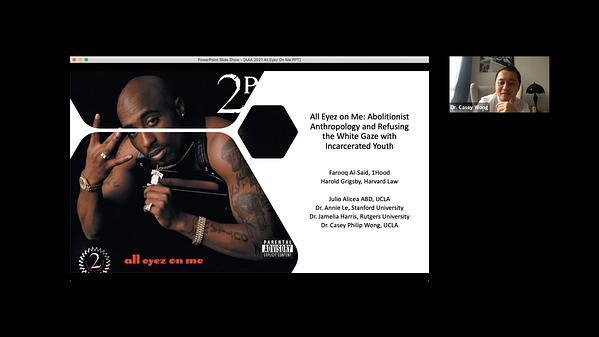Would you like to see your presentation here, made available to a global audience of researchers?
Add your own presentation or have us affordably record your next conference.
keywords:
filmmaking
gender violence
criminal justice
In January 2019, the Guinean journalist and feminist activist, Moussa Yéro Bah, was found guilty in a defamation suit. The suit involved a clip of Ms Bah on her radio news program, Les Grandes Gueules (Big Mouths), in which she spoke about a sexual assault case in Guinea. While Ms Bah never named the alleged perpetrator, his identity was well known on the street and in social media. He promptly sued Ms Bah for defamation, and won. Journalists and activists were inflamed by this decision and rallied in Ms Bah’s support, both on- and off-line. Meanwhile, the alleged perpetrator was never brought to trial for rape, despite the existence of video evidence against him, and the charges were quietly dropped. The tangled web of legal actions in this story raises critical questions about truth claims, the production of proof, and parallel systems of justice in sexual assault cases. While formal criminal justice processes require compiling evidence and investigating claims, the outcome of cases is often greatly shaped by gossip, digital and media activism, and the weight of public opinion. What happens to audio-visual evidence when it spills out of courtrooms and into public life, and vice versa? How should journalists and activists balance free expression with respect for the rule of law? What ultimately constitutes justice, for survivors of sexual violence and their advocates? This roundtable brings together an interdisciplinary group of scholars and practitioners across law, anthropology, media studies, and film to explore questions of truth, justice, shame, and activism in the context of sexual assault cases. The organizers will share work-in-progress from a film they are making about the Guinean case. The film traces a genealogy of false claims and debates that shaped the overall case. Through experimentation with formal qualities of film as an audio-visual medium, the project creatively explores voice, sound, listening, and seeing in response to sexual violence. Participants will share their expertise and explore topics including the rise of feminist digilantism in sexual violence cases; the everyday proliferation of audio-visual technology and its impact on legal cases; and the notion of shame as a productive force. We will also consider more broadly the question of how to use anthropology and film-making as means of advocacy. While film is increasingly used as a form of evidence in legal proceedings, what is its nature and possible impact as a form of intervention outside of the courtroom?

